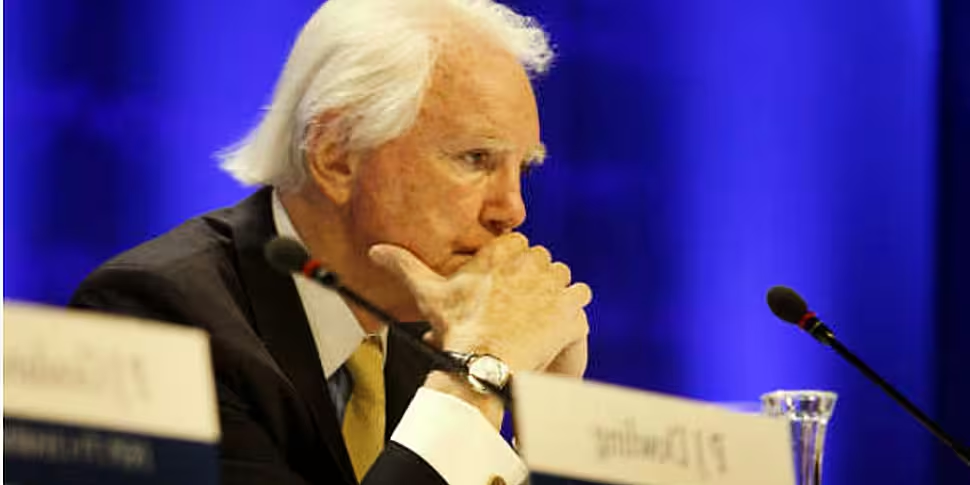On one level, AIB has no option perhaps other than to pursue former business magnate, Tony O’ Reilly for every remaining recoverable asset he owns.
At a human level though, there is something slightly unbecoming about the bank’s latest appearance in the Commercial Court to secure its remaining €15m “pound of flesh.”
The bank and many of its creditors, large and small, will argue that O’Reilly doesn’t deserve special treatment, and that a combination of ego and ill-judgement contributed much to his sharp recent fall in fortune.
But despite the swagger with which he strode the global corporate (and sometimes political) stage, and the vanity underlying some of his trophy investments, Tony O’Reilly did this State some service over many years.
He paid himself well of course and failed to respond quickly enough to the significant market changes affecting his media and brand interests but his wealth and influence supported investment and employment across a range of companies for close to three decades.
And he showed the world and an insular Ireland of the time that we could produce, from humble origins, a smart, ambitious, aggressive, articulate business leader, who not only made it to the top of Heinz, one of the world’s largest corporations, but who was happy to provide tangible and intangible support along the way for his native heath.
Outgoing AIB Chief Executive, David Duffy told the bank’s recent AGM that no creditor, whether former executive or not, would receive special treatment or terms from the bank and this maxim must underpin the bank’s actions against O’Reilly to some degree.
AIB is also still almost 100 percent owned by the State and must remain particularly sensitive to any perception that former gilded clients such as O’ Reilly are being treated with kid gloves.
That said, it is the view of many commentators - one of whom works for this station - that the bank has been particularly aggressive in its treatment of high profile creditors and that it seems intent not only on the flogging of exhausted horses, but on being seen to do so.
O’Reilly, now in his seventies and dogged by ill-health, also seems to be making a fair effort to maximise the returns he can make to his creditors. Asset sales include various palatial homes, works of art and shareholdings, though AIB seems to suspect it hasn’t had full and clear view of this process.
One interesting facet of this latest, and possibly final, round of battle between AIB and O’Reilly is whether the law of the Bahamas or that of Ireland will come out on top.
O’Reilly seems close to securing the agreement of all his banking and financial creditors, other than AIB, to the voluntary resolution of his €150m in outstanding debts, under the law of the Commonwealth of the Bahamas, where he has been a resident. Some of these creditors, such as ACC Loan Management and Lloyds are owed up to three times the value of AIB’s outstanding €15m debt.
AIB has informed the Commercial Court here that it was unaware of this “composition” process until April 20th when it seemed well advanced and also unaware of the security held by other banks on some of the assets it is pursuing; evidence, if it was required, of the seeming complete breakdown in trust between the bank and O’ Reilly’s advisers.
Whatever the outcome, Irish law versus Bahamian law; the bank versus its former 'master of the universe' client, there will be no real winners in this sad and, at times, public battle.









